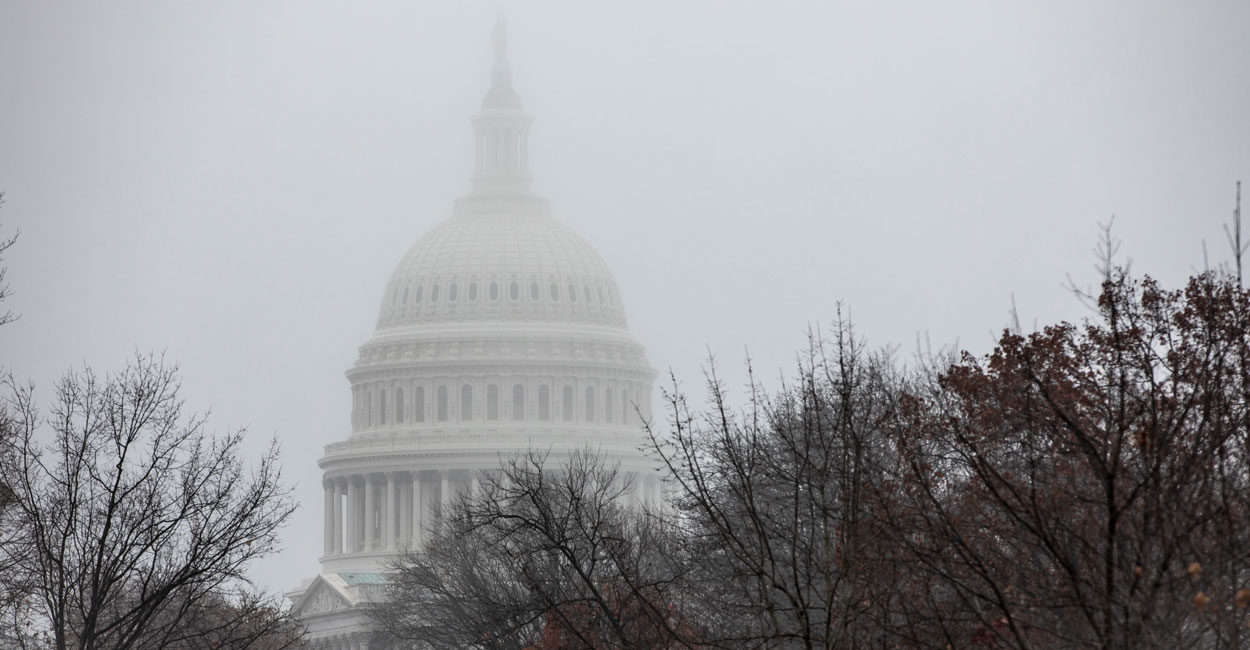
A New Year’s Resolution For Every Republican Leader: Fewer Government Workers
By Sam Adolphsen – January 1, 2024
You may not have had “follow Argentina’s policy lead” on your 2024 bingo card.
But here we are!
Just as we are set to ring in a new year, the new president of Argentina delivered one of the better policy reforms we’ve seen at home or abroad in recent years by eliminating thousands of government jobs in one fell swoop.
Governors and candidates for president should take note. This is a must-do reform at the state and federal levels in 2024.
Any serious conservative candidate or elected chief executive should have a well thought out plan to reduce the headcount in government.
At a minimum those plans should include a hiring freeze, eliminating vacant positions, and some wholesale closing of unnecessary departments and agencies.
There are lots of good reasons to slow and reverse the growth of government. The most basic of course is that we are running a deficit and have accumulated an appalling $34 trillion national debt.
Some day in the next couple decades when my kids ask me, “Dad, why did America go broke?” I’m going to be ashamed to have to say, “Well kids, our Centers for Disease Control just really needed those hundreds of assistant epidemiologists.”
Sadly, that is where we are headed, and fast, if our leaders don’t act.
Just like in Argentina, much of our government spending is a result of paying millions of government employees’ salaries, benefits, and pensions.
At the federal level, an estimated 2.2 million government workers cost taxpayers somewhere near $300 billion a year.
I say “estimated” because the federal government is now so huge that even the researchers who work for Congress can’t figure out exactly how many employees there are.
We can’t blame the D.C. swamp alone. Many state governments are also driving your tax bill and the deficit upwards with their own constant expansion.
There are something like 5.5 million state government employees spread out at varying levels across the country. That’s to say nothing of the 15 million or so local government workers.
Anyone with the least bit of common sense knows there is a lot of waste among these millions of government workers.
As the Chief Operating Officer at the Maine Department of Health and Human Services, I saw that waste firsthand.
The department had more than 3,500 full-time employees. We found hundreds who were watching streaming video on their phones all day, employees playing computer games instead of working, and a whole public health department that did very little except fill out grant requests for more money and beg to hire more employees.
That’s when Maine Governor Paul LePage enacted a statewide hiring freeze. He would not allow any position to be filled unless a written request was approved by him.
It worked.
Maine reduced headcount and eliminated a long-running budget deficit in the process.
President Trump enacted something similar at the federal level his first term as President, and Governor Sarah Sanders in Arkansas has also employed this smart tool for reining in government. House Republicans in Congress have proposed a good bill to freeze hiring at the Department of Education.
Another way to tackle this issue is to eliminate state government jobs that have been open for a long period of time.
If that assistant epidemiologist job has been vacant for 12 months and we survived without them putting up more posters or sending out another survey, do we really need to continue to pay for that position?
Of course not. Cut it.
Governor Ron DeSantis has proposed something similar in Florida by outlining plans to eliminate 1,000 taxpayer-funded state jobs. This is helping Florida achieve further savings for taxpayers and debt reduction, among other things. Smart.
Finally, state leaders and whoever is the next president should be laser-focused on eliminating entire departments and agencies that are ineffective, obsolete, or doing tasks that should be done by the private sector.
Many Republican presidential primary candidates have proposed sweeping reforms to reduce the size of government.
Vivek Ramaswamy wants to eliminate more than one million federal employees, and he, Trump, and DeSantis have all wisely floated eliminating entire agencies.
President Trump had some great success in draining the swamp during his administration. He made it easier to remove underperforming or insubordinate employees and moved some agencies out of D.C.
Biden has already worked to roll back that key reform. The next president should build upon Trump’s good work, and governors should follow his or her lead. It will save taxpayers money, help balance budgets, and close the deficit.
Beyond that very important benefit, it also means there will be fewer regulators to create and enforce senseless business-killing regulations.
If Argentina can do it, so can the great United States of America!
Sam Adolphsen is the policy director at the Foundation for Government Accountability, and the former Chief Operating Officer for the Maine Department of Health and Human Services where he oversaw welfare eligibility and fraud investigations.
